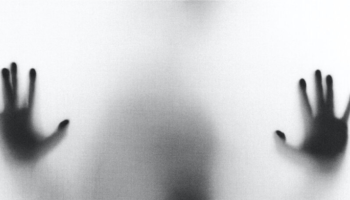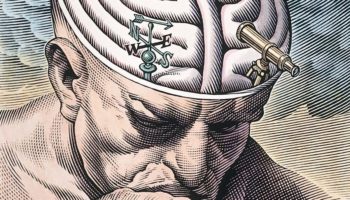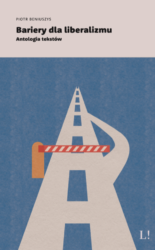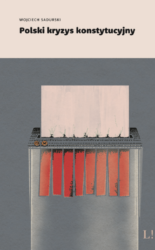For the past few years, we have been witnessing a creeping process of „giving up” manifested by the defenders of liberal ideas. This capitulation of sorts is a result of the bandwagon effect among opinion leaders, and a faulty analysis of the current socio-political situation that is not based on facts and a sensible examination of the historical truth. Time and again, those who should defend “our” ideas vehemently – liberal and leftist philosophers of ideas, political scientists, commentators, politicians, economists – beat their breast and start apologizing, claiming that they were stupid in their attempts to redefine liberalism. They sometimes even go as far as to state that liberalism is a thing of the past.
There’s no greater gift for the many enemies of freedom than instilling doubt in the ranks of its defenders. This is a grave danger for a free-market liberal democracy – the best political system for an individual, which luckily dominated the second half of the 20th century in the developed world. It’s not a phenomenon typical only of Poland. In the capital, it was introduced by Krytyka Polityczna ten year ago, spreading defeatism across other key centers of a liberal Poland – including the people at the Gazeta Wyborcza daily and even members of our Liberte! team.
I’m writing this piece to show why it’s not liberalism that has failed and to prove that the current wave of populism stems from something else. I thus put forward several hypotheses related to the facts that are commonly underestimated when analyzing the socio-political situation in Poland.
First, let’s get this straigh: the divide within the Polish society and a wide support for populism are not the consequence of a liberal economic and political transformation.
It’s astonishing that so many people take this faulty statement for granted, using it to explaining the support for the anti-system parties – such as the Law and Justice (PiS) or Kukiz’15. Not long ago, Gazeta Wyborcza published an article by Wawrzyniec Smoczyński, who claimed exactly that – thus repeating trite remarks about the social consequences of a brutal transformation.
Of course, maintaining the isolated museum of poverty of the 1980s would be, socially, far less drastic. When examining the history of socio-economic processes, it’s impossible to identify a period that would have solely a positive impact on all parties involved. At the same time, it’s difficult to find a similar period in the Polish history to that of the years 1989-2019, when the standard of living of almost entire society grew equally fast and to such an extent.
Those who defend the idea that the liberal transformation was bad often neglect the facts, and their erroneous diagnosis leads to abandoning many key values of liberal democracy. And that’s the first step towards a disaster.
In the years 1989 and 1990, the Polish society was as deeply ideologically divided as it is now, in 2019. Let me remind you that when the first partly free elections since 50 years (which gave hope to break free from the hopelessness of communism) were held, 38% of Poles did not cast a vote. In 1990, after the first round of the presidential election (with Lech Walesa and Tadeusz Mazowiecki as candidates), Stanislaw Tyminski, an obscure candidate with the history of populism and scams, received 23.1% of votes, thus making it to the second round, in which 25.75% of voters supported him.
Next to Tyminski, Jaroslaw Kaczynski (the current leader of the PiS party) and PM Mateusz Morawiecki look like predictable politicians.
In 1993, now already totally free, parliamentary elections in Poland resulted in a success of two post-communist parties: Democratic Left Alliance (SLD) with 20.41% of votes, and Polish People’s Party (PSL) with 15.4% of votes.
In hindsight, the later strategic decisions of the leaders of these post-communist parties were based on the premise that a lion’s share of the votes cast for them in 1993 was a result of an opposition towards a new pro-democratic and Western-oriented path that Poland had decided to follow. This fact is commonly neglected.
For a long time Poland was lucky to have populists voting mostly for populist politicians, who – irregardless of their rhetoric – once they took power, actually shared the agreed direction of state development. A departure from this tendency took place only in 2015, since, paradoxically, the first PiS government (in the year 2005-2007) did not ignore this consensus.
The current problems are a consequence of the crisis of the elites and their ideological beliefs, and not of a significant social change. The leaders of the pro-European camp have started to doubt themselves, while the leaders of the populist camp – instead of mobilizing the votes of populists and support raison d’etat – have either been following the path of a primitive desire to hold on to power, or started to truly believe in their deluded ideology.
The consequences of the economic transformation have been, therefore, not the main reason for supporting populism. Populists have always enjoyed a significant support in Poland. Paradoxically, the transformation was neutral by default, which proves that – contrary to the Marxist ideology – statistically, it’s not owned assets that determine voter behavior.
In theory, the support for populism should have dropped significantly. The economic standard of living of an average Pole differs significantly between 1989 and 2019. A true revolution took place in this regard; one that was almost unnoticed in its impact on voting behavior of Polish citizens.
Since 1989, Poland has been consistently radically divided in terms of politics to, bluntly speaking, the supporters of openness and pro-Western values, and the supporters of making a U-turn from the path the country was following since the beginning of the transformation. The results of the elections conducted during the Third Polish Republic were a consequence of three main factors: a consolidation or fragmentation of the parties addressing one of the described groups of voters; the ability to mobilize own electorate; and a natural disillusionment with the politicians that had held power already for a long time.
The 2015 crisis stemmed primarily from a low mobilization of the “browsing” voters. The opinion leaders who started to question their own values and spread defeatism among the masses of voters are very much to blame for such a state of affairs. At the same time, this defeatism was completely out of touch with the effects of implementing in the entire Western world “our” ideas, which led to historically unprecedented wealth and peace.
This does not change the fact that – as a result of these three key factors – the democratic camp will face a much harder task now than it has throughout the last 30 years. It also does not mean that the democratic leaders did not make strategic mistakes, as the introduction of liberalism and a successfully executed economic transformation were clearly not a mistake.
First, Catholic Church Breaks an Alliance
The current crisis faced by the “pro-European camp” has truly been deepened by the fact that the informal contract made at the Polish Round Table was broken by one of the key ideological players – namely, the Catholic Church.
One of the greatest historical accomplishments of Pope John Paul II and other Church leaders of the late 1980s and the early 1990s was employing the huge potential of the Church for promotion of a pro-European and democratic development of Poland. Even more so if we acknowledge that the nature and ideology of the Polish Catholic Church were not really coherent with the direction of the changes – quite the contrary. Yet, the need for cooperation was imposed on the Church by a charismatic leader (the pope), and the alliance was from the very start confirmed by almost unbelievably generous unofficial financial agreement, negotiated partly thanks to then PM Tadeusz Mazowiecki and other post-communist politicians, as a result of which the Polish Church received a substantial financial and strategic support to help it reach the masses.
This contract was operating somewhat efficiently until 2005, the year when Pope John Paul II died. Meanwhile, more radical initiatives of the Church and affiliated with it Radio Maryja were being developed. After the pope’s death the inevitable happened. The views of the majority of members within the existing structure were corrupted by these of the new Church leadership. The Church faced its own transformation and, come the year 2010, it started to actively and with force attack the pro-European path and question the values of liberal democracy.
One of the greatest sins of the PO-PSL coalition of the years 2007-2015 was the fact that it did not address this change. Civic Platform continued to finance the ever more powerful Church in a manner that was unlike any support for any other institution, thus contributing to the destructive force that has been targeting the values that have constituted the foundations of the Third Polish Republic.
When our Foundation initiated the “Secular School” campaign, we wanted mainly to launch a mainstream debate on the extensive privileges of the Church in Poland and to identify tools to start negotiations devoted to changing the direction of the then political activity of the said Church. One of such incentives would be simply the threat of cutting off the state funding.
Our campaign, however, may have been launched too late and on a rather limited scale. Still, Civic Platform – the then ruling party – did nothing to address the issue, whereas the then leader of Nowoczesna threw the campaign volunteers out the door during the founding congress of the party.
When designing a new Poland after the PiS government, agreeing on a new roe of the Church is crucial. Maintaining its status quo is not an option. The Church must understand the consequences of breaching the Round Table agreement. The leaders of Civic Coalition need to acknowledge the facts.
One of the options is pushing for the formulation of a new systemic agreement by means of straight-forward financial negotiations with the Church. An agreement that would stabilize democracy. In return for keeping their privileges in place, the Church would have to “clean up the mess” related to its anti-European wing and the operations of Radio Maryja. If the agreement is not reached, a democratic state can no longer finance such a strong anti-system organization in the current form .
Another option suggest that already the Round-Table agreement with the Church was a mistake and that feeding money into an institution that eventually turned against the system was a bad idea from the start. In light of this approach, a new democratic order must be created in such a manner that the Catholic Church is treated on an equal footing as other religious associations or non-governmental organizations. This would mean cutting off the financing and would result in the state taking over a number of public utility functions so far performed by the Church.
Despite my skepticism towards the Church, I believe that the former option would be much more favorable for Poland. In this scenario, the Church would be governed by the people who understand the Polish raison d’etat.
The second option, on the other hand, would be much more difficult to deal with. Unfortunately, currently, it seems that it’s the one that’s likely.
The worst-case scenario is, however, a situation in which the Catholic Church continues to pursue its anti-European propaganda and raises the next generations of Poles in the spirit of a departure from the values of liberal democracy – all thanks to its vast public financial resources and a privileged position in the country. If we, therefore, think of the next generation, we have already lost the battle.
One thing is certain: revising the relations between the state and the Church is crucial if we want to build a new democratic Poland after the PiS government.
Second, Lack of Democratic „Propaganda”
When we take a look at the world history, a rather disheartening, yet, natural rule is one according to which the history books are written by winners. The Third Polish Republic is the only exception known to me – here, the winners allowed someone else to write the history books for them, and it was actually the Catholic Church that was placed in charge of the chapter on ideas.
The leaders of the Third Polish Republic, against all reason, allowed for a situation in which almost every Pole is familiar with the story of King Wladyslaw I the Elbow-High, Saint Symeon Stylites, woud be able to declaim Bogurodzica or the works of Norwid, yet has no idea what is “Solidarity”, martial law, or who are such people like Lech Walesa, Leszek Balcerowicz or Jacek Kuron.
During the last thirty years, there was almost no mention in the school curricula of democracy, why consensus and cooperation are key values, why a political opponent is not a mortal enemy, why international trade safeguards peace or why there’s a need for such organization as the European Union – and that their objective is not only to give us money for building new roads.
How is an average small-town young Pole to know about these things? Why are there almost no statues of Walesa, Balcerowicz, and Walesa to be found anywhere in Poland? Why have our elites given up on the necessity to tell the next generations their story and share their values? Some NGOs tried to fill in this void – yet, due to limited resources, their success was rather limited. As if the state had no means to take care of it on its own…
I fail to understand why did his happen. I may only assume that it was the fact that the pro-European leaders competed with one another and their typical aversion to employing propaganda that are to blame. Personally, I feel it in my bones – and so do many others like me – that not resorting to propaganda was a good thing. Teaching critical thinking is the key, and propaganda may backfire. The problem is that this phenomenon is true only with regards to a part of the Polish society.
The pro-European camp targeted precisely this group and created its media (Gazeta Wyborcza, Krytyka Polityczna, Liberte!, TOK FM, TVN24) and communication strategy to cater to their needs. These media outlets and initiatives were truly great and very much needed; yet, obviously, they were unable to reach the masses.
We have created a set of communication tools that we find appealing, thus forgetting about the rest of the population, who were left on the mercy of the Church, the public media, and Radio Maryja.
I still cannot comprehend how is it possible that Radio Maryja is the only radio that covers the entire Poland. The ambition and a cavallier focus on the values of the elites aimed at creating ambitious media to make themselves feel good, lack of imagination, and a failure to try to understand people that are different from us, ignoring the school curricula (because only the PISA results matter, right?) led to a situation in which a huge part of the society left us for anti-European propaganda. From this point of view, it’s not really surprising that PiS enjoys such a popularity.
Today, due to a lack of a pro-democratic propaganda, the great success of the Third Polish Republic starts to crumble. The contemporary political crisis does not stem from introducing democratic and capitalistic ideas in Poland. Its roots may be found in giving up almost a half of the society without a fight to a catholic-nationalist camp, which was the only one that was laud and clear – in schools, in churches, in the mainstream media. As pointed out by Lech Walesa: “We should have done what father Tadeusz Rydzyk of Radio Maryja is doing. Namely, set up our microphones in all parties and organizations”1.
One of the key tasks for the pro-European camp is creating new communication channels and media outlets, thanks to which we would be able to reach the currently neglected part of the society. These efforts to reclaim it from the hands of the PiS party must be supported by the state.
After 30 years of mass state financing of the Catholic-patriotic propaganda, there is a dire need to re-introduce a balance. At the same time, new mass media cannot be a part of the public media conglomerate, as they easily fall prey to political interests. Moreover, if public media are to survive, their mission must be rebuilt where now they follow blindly the vision of Jacek Kurski, the president of TVP.
Third, Good Framework, Bad Details
The Third Polish Republic was a state of an almost model framework, based on solid values, but which was designed without a particular attention to detail – which is rather typical of Poland. Now, instead of trying to fix those details that contributed to contemporary issues, a tendency to attack this amazingly designed framework is rampant. It’s a true paradox that stems likely from a typical behavior of Polish intelligenstya, who often feel that it’s better not to engage in a discussion on trivial details.
Unfortunately, the Third Polish Republic made the citizens accustomed to the fact that while giving them liberties, it did not offer good-quality services. While not offering any efficient concrete solutions, the PiS party claims that it will change this situation – a promise that makes the party so popular. Yet, if you want to address a real social need, you must have a plan. And saying that a small government will take care of everything, is simply not enough.
Truth be told, there never was anyone who would either see a “small government” in Poland or found a solution to how to go about it. What we need is a responsible state that would be efficient and well-organized.
What failed in the Third Polish Republic was the manner in which the state was organized, based on the premises that contradicted the liberal guidelines. Liberalism assumes the existence of a limited, efficient, and decisive state. Meanwhile, the state developed since the beginning of the 1990s was neither small, nor efficient.
We were dealing with a poor state that tried to tackle almost every sphere possible simultaneously. The economic revolution of that time brought about capitalism and reinstated private property, yet, it failed to introduce an efficient and small state.
Thus, the state has remained all-encompassing and overly bureaucratized, with a complicated tax system, an unstable legal basis, and time-consuming legal proceedings. All this, in combination with the lack of financial resources of institutions in the 90s and a constant state of being underfunded, brought poor results. As a consequence, even though the then politicians were supporting sensible liberal ideas, they failed to organize services offered by the state in accordance with their beliefs.
Was it possible to do all that better in such an objectively difficult situation? I honestly don’t know. I am convinced, however, that accusing liberalism (with its rather limited real contribution to the organization of the state services) of anything proves that people are out of touch with reality.
Recently, the quality of some services offered by the state has improved and thus the state may attempt to direct its resources elsewhere. This trend is a result of one key development: the society as a whole is becoming more wealthy, thus making the state as a whole more wealthy too; hence manifesting a spectacular success of the transformation.
Instead of trite disputes over neoliberalism, which, after all, exists only on paper, the left and liberals should sit down together and start working out efficient and just reforms of public services that would be affordable and which would give us a sense of justice and efficiency of the state.
Among the areas that require special attention, we may list, for instance:
- Taxes (the process of collecting taxes is one of the public services). These should be as low as possible, yet set at such a level that would enable efficient operations of the state. It’s crucial that the tax system is designed in a manner clear for everyone, so that entrepreneurs may feel safe. Currently, the Polish tax system gives a sense of security only to tax authority employees – a great example of this issue is the so-called split payment law. There are also many cases of companies that went bankrupt as a result of bad decisions of public officers or of officers who grant various concessions.
- Maternity leave. When will the Polish government realize that providing maternity leave is one of the most pro-demographic policies there is? The scale of discrimination by ZUS (Polish Social Insurance Institution) and the number of cases of the self-employed or those employed in micro- and small companies that are refused the right to feel safe and to proper maternity is, however, a very „hush-hush” information.
- Overregulation. Poland is overregulated and, on top of that, regulated badly. A lot of time and energy is being wasted by both entrepreneurs and public officers on dealing with useless matters. Meanwhile, too much leeway is left in regards to a number of issues that really require paying special attention and exerting control over. OHS regulation is one of such infamous examples. Fictitious OHS training must be conducted for office workers, while the majority of construction or production businesses – thus work places should really provide a safe working environment – lack sufficient supervision in this regard. Meanwhile, more power is artificially granted to bureaucrats, who decide where a new pharmacy or a new liquor store are to be set up. Unnecessary bureaucracy is introduced in areas where it should be supply and demand that drive such developments.
- Discriminating the vulnerable. I’ve always been wondering whether a society in which the vulnerable, who have been out of job, have no (or a limited) access to health care may be called „well-organized” and „just”. At the same time, no micro-payments that would rationalize the frequency of using medical services by many are being introduced. Is there even a place for this issue in the public debate in our country? After all, it’s much easier to blame neoliberalism without really addressing the issue.
Let’s not be ashamed of liberalism, but rather proud of it. Liberal ideas have greatly contributed to bringing a positive change in the world, to a great leap in terms of wealth, while at the same time ensuring freedom and an opportunity to grow. As regards international relations, it brings peace instead of conflicts.
What is liberalism? It’s a democratic system that safeguards the rights of all citizens, including the rights of minorities that might be put in danger by the rights of the majority. It’s a system based on the rule of law, which protects individuals from arbitrary decisions of authorities. It’s the separation of powers that ensures a balanced system and defends it from abuse of one individual or a political group taking all the power.
Liberalism is a system that guarantees human rights, personal liberties, women’s rights, religious freedom, artistic freedom, the right to choose one’s way of life, to conduct business, and to hold property.
Liberalism stresses the need for the state to follow the rule of equal opportunities for citizens, their equality before the law – with a special emphasis on the most vulnerable, who should receive support to help them deal with their problems.
Liberalism champions such values as pursuing development, a protestant work ethic, entrepreneurship, saving money, and the ability to manage a sustainable budget. It’s a small government, a reasonable state that eliminates bureaucratic absurdities. A state that cultivates support while at the same time being efficient and respecting the rules and quality of its services, aware of the fact that mediocrity may be the death of even the best of ideas.
Liberalism means believing in the power of science, the capability of human brain, and humanism. It assumes the separation of the state from the Church, a secular state in which all religions are accepted. It’s liberals who will fight for the rights to both practice the Catholic religion and to same-sex civil partnership. Liberals respect ideological choices of individuals and want to create a society in which different people can peacefully coexist.
It’s liberalism that acknowledges the importance of developing international relations that break cultural barriers and create ties that ward off aggression and ensure peace. This is why liberalism will always promote international trade, eliminate barriers in movement of workers, services, and capital. This is also why it’s liberals who support establishing international organizations and structures that cushion the tensions between states and create a framework for a more efficient cooperation.
Liberalism means believing in an individual, a desire to seek compromise, and creating alliances among the people of various beliefs and convictions, but who at the same time are in favor of coexisting within one social living organism in order to combat the true enemies of freedom – people who do not accept the rules of a liberal democracy.
Today, Poland needs such an alliance, a kind of “fellowship of the ring” – one that may not be ideal, but which builds bridges and not walls between various groups and organizations. A kind of all-encompassing democratic front of the likes described by Daniel Ziblatt and Steven Levitsky in How Democracies Die.
The abovedescribed values are precisely the ones that must not be redefined. They must be defended at all cost and championed even in the bleakest of times. I don’t know if we succeed this year. I am, however, convinced that the future is ours, and that the place of Poland is in Europe.
The article was originally published in Polish in the print edition of the Liberte! magazine. Some excerpts had been published in “Magazyn Świąteczny” of the Gazeta Wyborcza daily
Translated by Olga Łabendowicz
Cover photo: Jan Jacobsen via Google Images || CC
1https://liberte.pl/lech-walesa-dzisiejsza-racja-stanu-to-dobre-budowanie-wiekszych-struktur-rozwiazaniem-jest-kontynentalizm/.





















